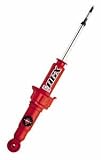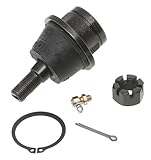 One of the most common first indications of a problem with your car is a Clunking Sound heard while driving. The real problem is finding where is the clunking is coming from and what parts need to be replaced or repaired to cure it.
One of the most common first indications of a problem with your car is a Clunking Sound heard while driving. The real problem is finding where is the clunking is coming from and what parts need to be replaced or repaired to cure it.
Seriously though if you are the primary driver of your vehicle changed in the way the car is performing including changes in sounds and felt vibrations can be an indication that you need to inspect something before a serious problem occurs.
Actually a motor vehicles test agency performed a study where they removed air from a cars tires in steps and had drivers use the vehicles on a test track. As much as 40% or more air could be removed before the driver felt significant differences in the handling and this was due to suspensions and power assist steering making up for the difference. Losing that much air could be significant if you were in an emergency situation.
Diagnosing A Clunk
 The first thing that you should note when you hear a “clunk” or other noise is try to determine which part of the car it is coming from. If you can .. open the windows and try to determine is it coming from the front or back and is it the left or right side.
The first thing that you should note when you hear a “clunk” or other noise is try to determine which part of the car it is coming from. If you can .. open the windows and try to determine is it coming from the front or back and is it the left or right side.
Determining the general location will help in finding the problem.
Does the noise happen when your are stopped with the engine running? If so then you know it is an engine or maybe a transmission problem. Have someone rev the engine while you visually inspect the engine and its accessories.
Does the noise happen when you come to a stop in both forward and reverse? This would indicate a suspension problem.
 Does the noise only happen at a specific speed? If so try driving at that speed in a different gear. If the sound does not happen in another gear then it is most likely a transmission problem. If it happens in every gear it could be an axle or bearing in your suspension.
Does the noise only happen at a specific speed? If so try driving at that speed in a different gear. If the sound does not happen in another gear then it is most likely a transmission problem. If it happens in every gear it could be an axle or bearing in your suspension.
Does your car make the noise (engine off) if you push on its fender or trunk and force the suspension to move through it’s range of motion? Then it is a suspension problem.
Does the sound happen while driving in all gears ? Is it a clicking sound that gets faster as you drive? Then it could be your CV Joint in your Axel.
Problems with your tires can also cause thumping noises. Worn shocks or springs can cause cup shaped wear patterns that look like someone scooped a spoon of your tire tread out for a snack.
Loose engine, suspension and even body parts can cause random sounds at different speeds giving you an impression of much bigger problems.
Curing the problem
Once you have found the problem or its general location or part that it could be then you can inspect it closer and decide if it is something you can fix or if you need to replace parts or take it to a professional.
